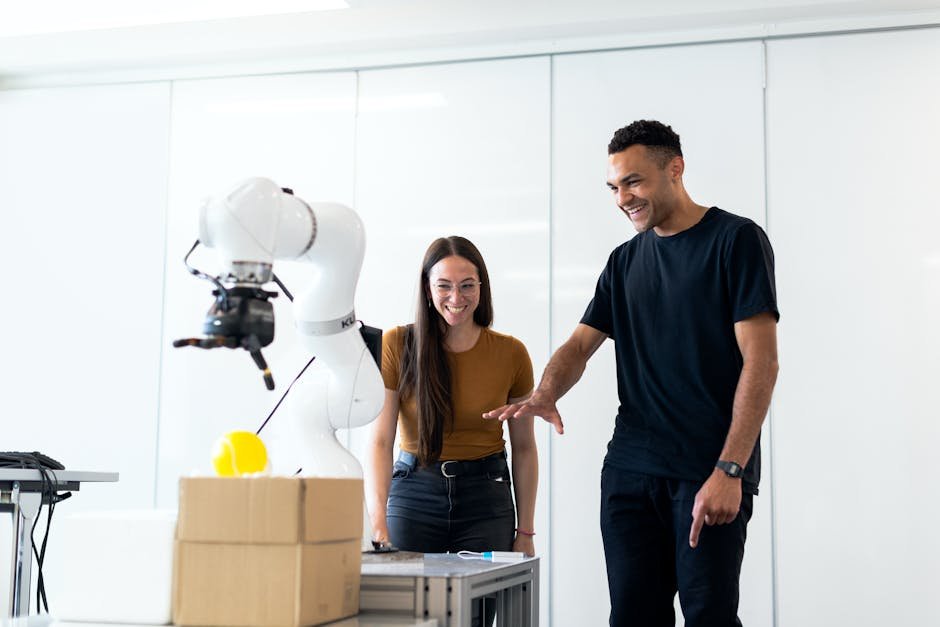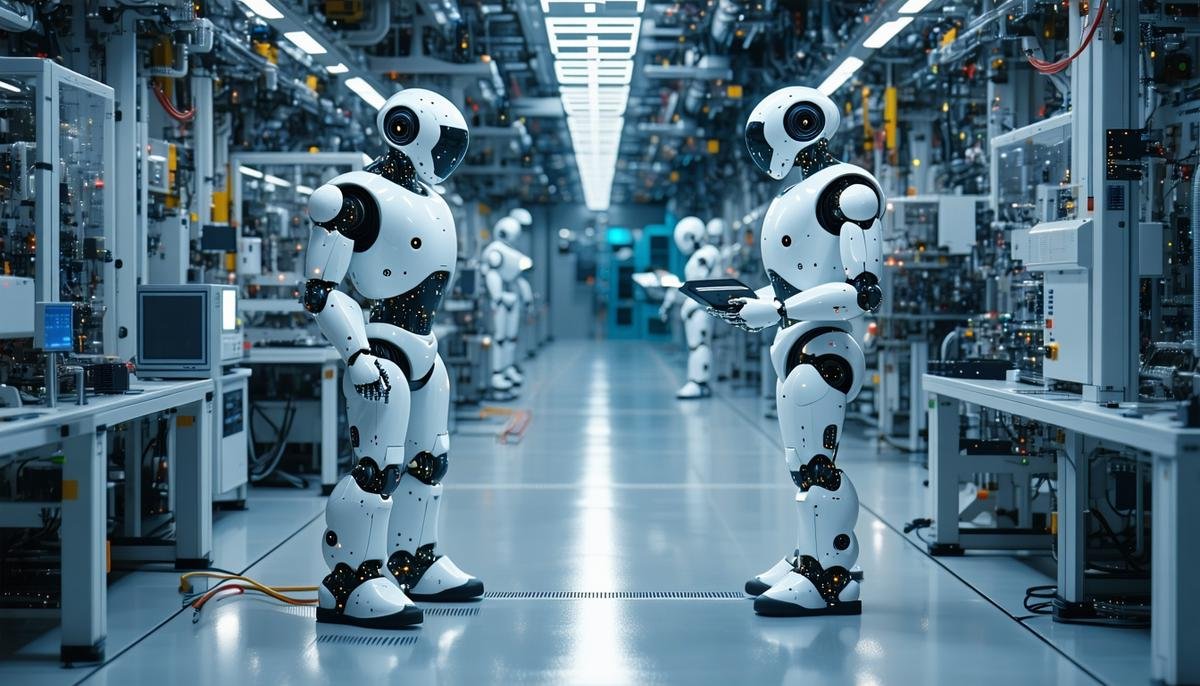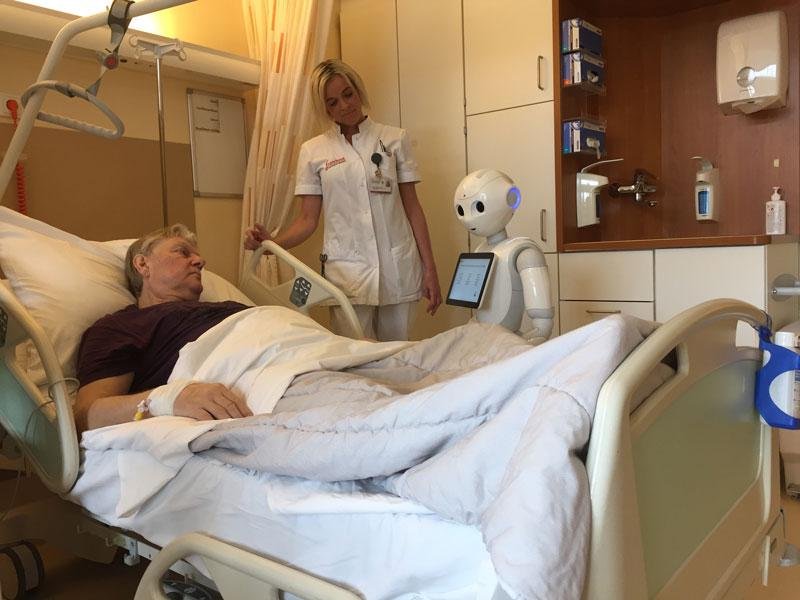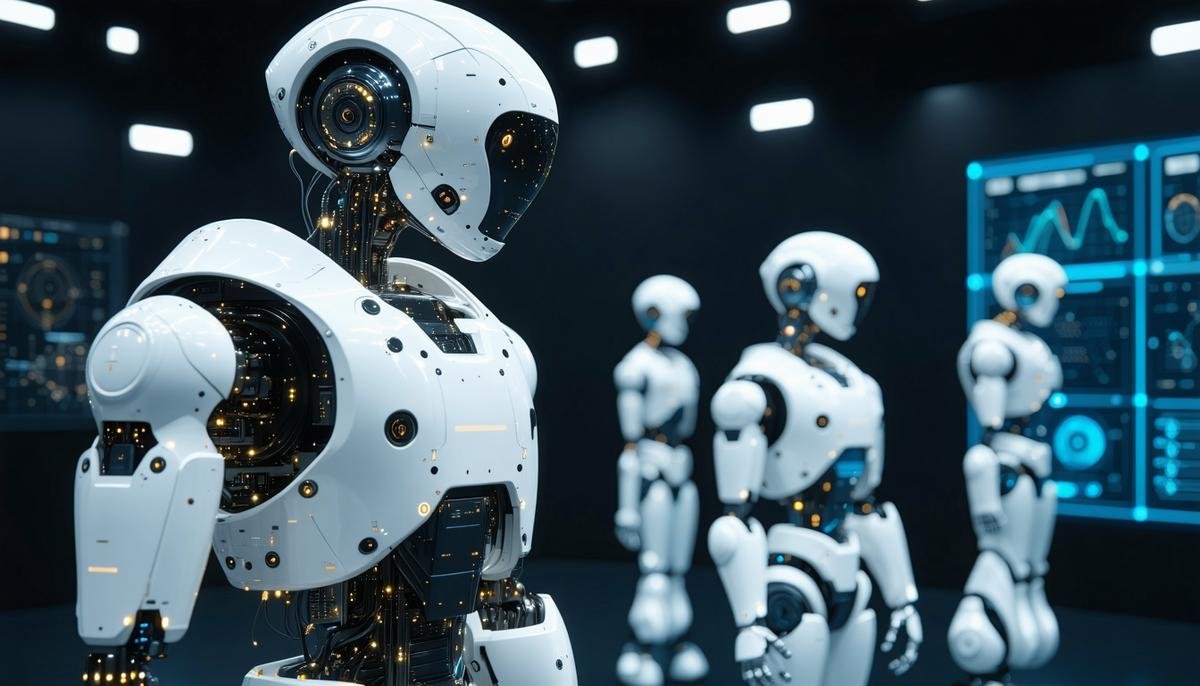AI Integration in Robotics
Artificial intelligence (AI) is advancing the capabilities of robots across industries. The combination of AI and robotic systems enhances their speed, intelligence, and agility. This integration allows robots to adapt to new conditions in real time, increasing machine autonomy and capability.
In manufacturing, AI-powered robots excel on assembly lines, acting as workers and inspectors. They identify defects and make instant adjustments, moving with precision. At packing stations, these robots use advanced vision systems to ensure efficient packaging.
In agriculture, AI-equipped robots and drones monitor plant health and growth, identifying issues early. Harvesting robots pick produce with care and speed, outpacing human laborers.
Retail spaces use AI robots for customer service, offering personalized recommendations and answering questions. In healthcare, surgical robots assist doctors in complex operations, while autonomous robots handle routine tasks like medication delivery.
The transportation sector benefits from AI with self-driving cars and drones handling various tasks from delivery to aerial inspections.
As AI integrations progress, robots become more sophisticated, redefining efficiency and expanding machine capabilities beyond previous expectations.

Applications in Manufacturing
In manufacturing, AI-driven robots are expanding possibilities by combining mechanics with digital intelligence. They excel in material handling, assembly, quality control, and operational monitoring.
These robots move heavy loads with precision, using sensors and real-time data processing. During assembly, they coordinate complex tasks, adapting quickly to new instructions.
AI significantly improves quality control, detecting minor product imperfections invisible to humans. For operational monitoring, AI robots use predictive analytics to anticipate potential issues and forecast maintenance needs.
These advancements in AI robotics usher in a new era of manufacturing that combines cutting-edge technology with industrial demands.
Key Applications:
- Material Handling: Precision movement of heavy loads
- Assembly: Coordination of complex tasks
- Quality Control: Detection of minute imperfections
- Operational Monitoring: Predictive maintenance and issue forecasting

AI Robotics in Healthcare
AI-powered robotics is enhancing patient care and hospital operations. Surgical robots assist surgeons by analyzing complex data in real-time, improving surgical outcomes.
In hospitals, AI robots handle routine tasks like medication distribution and patient transport, allowing healthcare workers to focus on direct patient care. They also improve logistical flow and supply chain management.
In rehabilitation therapy, intelligent robots assist therapists by customizing exercises to individual patient needs. They provide personalized care and tracking, adjusting therapies in real-time for optimal effectiveness.
"The integration of AI in healthcare robotics represents a shift towards improved patient care and operational efficiency."

Challenges and Safety Concerns
Implementing AI robotics presents challenges that require careful management. Safety is a priority, especially when robots work alongside humans. Developing comprehensive safety protocols using advanced sensors and algorithms is essential to prevent accidents.
Effective communication between robots, humans, and other machines is crucial. This requires standardized protocols for seamless coordination and information exchange.
Cybersecurity is an ongoing concern as connected robots face vulnerabilities in networked environments. Implementing strong cybersecurity measures is necessary to prevent unauthorized access and data breaches.
Addressing these challenges requires a comprehensive approach combining technological innovation with foresight to develop solutions that enable AI-powered robots to operate safely, communicate effectively, and remain secure.

Future Trends in AI Robotics
Emerging trends in AI robotics point to more collaborative robots (cobots) designed to work alongside humans. These machines learn and predict human behavior, adapting to unique workflows.
Artificial General Intelligence (AGI) represents a potential leap from task-oriented AI to systems capable of performing any intellectual task. This could transform robots into versatile agents capable of intuitive reasoning and creative problem-solving.
AI in edge computing allows robotic systems to make real-time decisions with minimal delay, improving performance in applications like autonomous vehicles and drones.
Advancements in natural language processing and conversational AI may enable more intuitive human-robot interaction. The integration of AI and IoT (Internet of Things) offers the possibility of more interconnected systems, optimizing processes in areas such as smart city management.
These trends suggest a future where AI robotics continues to expand the boundaries of machine capability, enriching both industry and everyday life.

AI's integration into robotics is reshaping industries, expanding the capabilities of machines. As these technologies progress, they promise to improve efficiency and broaden possibilities, leading to a future where robotics plays an increasingly important role in our daily lives.
- World Economic Forum. The Future of Jobs Report 2020. Geneva: World Economic Forum; 2020.
- International Federation of Robotics. World Robotics 2021 Report. Frankfurt: IFR; 2021.
- Acemoglu D, Restrepo P. Robots and Jobs: Evidence from US Labor Markets. Journal of Political Economy. 2020;128(6):2188-2244.




